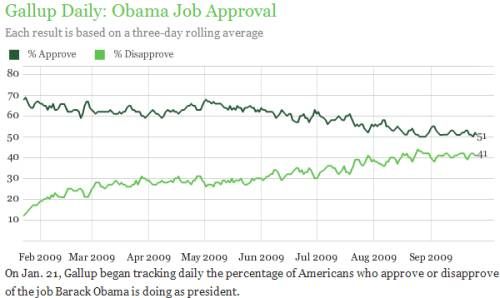Author's posts
Oct 06 2009
Ritter Debunks Propaganda for War with Iran
In the lead up to the 2003 Iraq invasion any good journalist on the day Powell told the world that Iraq had weapons of mass destruction would have been able to debunk Powell’s claims the same day.
Former chief United Nations weapons inspector in Iraq Scott Ritter spoke in Tokyo the same day Powell made his presentation at the UN and told the Foreign Press Association of Japan that everything Powell had said that day in the UN was a lie, and it later turned out that Ritter was right. Ritter’s speech that day was covered by Associated Press (AP) on video and wire services.
Every news organization in the world got Ritter’s speech via AP, and virtually none of them published it. Rather the world press simply let Powell get away with his lies that helped lead to an illegal invasion that by some counts resulted in over a million Iraqi deaths, along with the more than 4000 US Troop deaths and tens of thousands of US Troop maimings.
Ritter is now making similar warnings about the drumbeats for war with Iran and debunking the false claims that Iran is well on the way to producing a nuclear bomb, which by the way if Iran did produce and use against Israel would likely immediately result in Iran’s total destruction by Israel with their stockpile of by some counts 200 or more nuclear weapons.
We are being asked by a US Administration, Military Industrial Complex, and world press propaganda campaign, to believe that Iran is suicidal as a justification for attacking them.
Real News Network – October 6, 2009
Ritter on Iran
Scott Ritter challenges idea that Iran is close to producing a nuclear weapon
Oct 04 2009
The Big Bubble Is Bursting: Is There Life After Capitalism?
Here Paul Jay of the Real News talks in November 2008 at The Krahl Academy about foreign policies, wars, the crises of capitalism, media, economies, and about the shit hitting the fan.
Jay’s talk is about 40 minutes. Watch the video. It’s worth your time.
Real News Network – October 4, 2009
The crisis will deepen, we need real news
Paul Jay of The Real News speaks at the Von Krahl Academy, Estonia in November 2008
“If I’m not doing the thing I feel is most significant, then I feel empty inside.”
–Paul Jay
Oct 04 2009
An Atheist Asks A Favor Of God
An atheist was walking through the woods one day, admiring the beauty of nature all around him.
“What majestic trees!” “What powerful rivers!” What beautiful animals!”, he said to himself.
As he was walking alongside the river, he heard a rustling in the bushes behind him. He turned to look. He saw a 7-foot grizzly bear charging towards him.
He ran as fast as he could up the path. He looked over his shoulder & saw that the bear was closing in on him.
He ran faster, and then looked over his shoulder again, & the bear was even closer. He tripped & fell on the ground. He rolled over to pick himself up but saw that the bear was right on top of him, reaching for him with his left paw & raising his right paw to strike him.
At that instant the Atheist cried out, “Oh my God!”
Time stopped…
The bear froze…
The forest was silent…
Oct 02 2009
As Soon As I Find A Time Machine
I’m moving back to 1972 and I’m going to go get drunk and find a girl who’s out to get drunk and find a boy. Things are too weird and there is something not right about this century, and nobody seems to know how to have fun anymore. 😉
Sep 28 2009
The Red Pill or the Blue? Moral Psychology, and Whose Team Are You On?
TED.com member (from his TED profile) and Social Psychologist Jonathan Haidt studies morality and emotion in the context of culture. He asks: Why did humans evolve to have morals — and why did we all evolve to have such different morals, to the point that our moral differences may make us deadly enemies? It’s a question with deep repercussions in war and peace — and in modern politics, where reasoned discourse has been replaced by partisan anger and cries of “You just don’t get it!”
Haidt asks, “Can’t we all disagree more constructively?” He suggests we might build a more civil and productive discourse by understanding the moral psychology of those we disagree with, and committing to a more civil political process. He’s also active in the study of positive psychology and human flourishing.
Rather than me comment on it and perhaps skew responses or seed expectations, I’ll just let you watch and listen and take whichever pill you prefer.
This video is a TED talk Haidt gave last year. If you want hear more of his ideas and thinking, this year, posted today, Haidt spoke to the TED Blog about the moral psychology behind the healthcare debate in the United States.
Sep 28 2009
Walk Away

President Obama called NYPD Commissioner Ray Kelly [yesterday] to thank him for “thwarting the terror plot that targeted the city’s subway system, police said.”
Obama expressed his “appreciation and admiration” for the NYPD’s effort in stopping the attack, sources said.
Except, there was no known plot to target the city’s subway system. The Feds have consistently said they have no evidence Nabijullah Zazi was planning an imminent attack, and if he was, where it was to take place, what he was targeting or when.
“Nothing in the bulletins references the current investigation,” a Federal Bureau of Investigation issued spokesman said Tuesday. Investigators still don’t have specific evidence indicating an imminent threat to particular targets in the alleged plot, federal officials said.
Hat Tip to Jeralyn at Talkleft for No Attack, No Problem: Just Make One Up
Sep 27 2009
Protecting Us From Ourselves: An Earth Users Guide
Although humans have existed for longer, for more than ten thousand years human civilization, the aggregate of complex societies or culture groups defined as “characterized by dependence upon agriculture, long-distance trade, state form of government, occupational specialization, population, and class stratification”, has occupied and flourished on this Earth almost entirely within the Holocene era, a geological epoch which began approximately 11,700 years ago.
Virtually all of recorded human history takes place within the Holocene, and for most of those 12 millennia humans lived in relative harmony with the planet as integral parts of the ecosystem, or at least did not have the ability to affect the ecosystem negatively, and with only some relatively minor fluctuations Earth’s climate has remained fairly stable throughout Holocene era.
— how we lived in harmony with the planet during the holocene —
It is only in the last couple of hundred years that “since the Industrial Revolution, a new era has arisen, the Anthropocene, in which human actions have become the main driver of global environmental change”, say the authors

Sep 25 2009
U.S. Condemned For Pre-Emptive Use Of Hillary Clinton Against Pakistan
Innocent civilians across the impact zone are picking up the pieces after Secretary of State Clinton’s tedious visits to their farms, cultural centers….
U.S. Condemned For Pre-Emptive Use Of Hillary Clinton Against Pakistan

